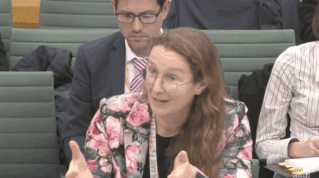A local council has been ordered to pay thousands to three families for failing to help SEND learners get to college.
Derby City Council has agreed to pay £4,240 after the Local Government and Social Care Ombudsman investigated three complaints that the council’s transport offer for vulnerable students was “impractical and unaffordable”.
The investigation, published yesterday, found that the council had applied its post-16 SEND transport policy “too rigidly” and one mum had “no alternative” but to give up work to drive her child to school.
Derby City Council said it does not comment on individual cases but has taken “swift action” to implement all the Ombudsman recommendations.
Cash-strapped councils have increasingly introduced annual charges to families to contribute to post-16 SEND transport in a bid to fill their financial black holes, a previous FE Week investigation found.
Councils also alternatively offer personal travel budgets, which provides fixed regular payments to families to arrange suitable transport for their children with specialist needs.
But a number of specialist colleges have previously raised serious safeguarding concerns of the safety of the actual transport provided, with safety breaches such as blind students abandoned by taxis reported.
The complaints
The investigation report outlined each of the three complaints to the council over its offer of personal travel budgets (PTB).
The first was from a parent named Ms X, who criticised that Derby council’s personal travel budget of £1,600 per year was an “unaffordable” contribution towards the cost of her child’s transport. Ms X said the only viable transport option was a taxi, which was £80 per day.
As a result, she told the ombudsman that she had “no alternative” but to give up work and to take her child to school, causing her to rack up debt and lose her support network at work.
The second parent, Ms Y, also complained the PTB was “too low” for her fourth child to take a taxi to college so they were dropped off late and collected early, causing anxiety and the learner missing out on special education.
Ms Y also complained to the education secretary who found the council applied the policy “too rigidly” and asked it to reconsider how it applies exceptional circumstances.
The council eventually organised a taxi after the start of the 2024/25 academic year and offered to reimburse Ms Y’s mileage and retain the PTB as a financial remedy. She told the Ombudsman it does not reflect the “level of injustice” caused over a whole school year.
Meanwhile, Ms Z’s complaint said the council wrongly applied a policy that did not cover the age group of her child, who was an adult learner.
She also complained that the annual PTB of £4,240 offered did not cover shared transport, which cost £144 per day – a shortfall of over £11,800 per year. The council full reimbursed her costs and offered to pay for a taxi.
The investigation
The Ombudsman found in all three complaints that the council had decided it was necessary for it to provide support, but did not then check whether the solution offered “did the job” of actually getting students to school or college.
The council failed to consider whether the PTBs were affordable for each family, it ruled.
It recommended the council apologise and offer compensation to all three families.
It ordered Derby City Council to pay Ms X £1,000 for the distress it caused. It advised Ms Y to be paid £250 for the distress, £1,240 for the extra time spent taking her child to college, and £1,600 for the learners’ missed attendance.
The council was also made to pay £150 to Ms Z for the distress.
Amerdeep Somal, the Local Government and Social Care Ombudsman said: “Councils must demonstrate they have considered the options offered to individual families, who are entitled to transport support, that actually provide a practical, safe and affordable solution to allow them to attend. They should not be given a simple ‘one size fits all’ blanket offer.
“Derby City Council has now accepted my recommendations to improve its service, including revising its policy. I hope this will mean it properly considers families’ applications in future.”
Councillor Paul Hezelgrave, Derby City Council cabinet member for children, young people and skills, said: “While the council is unable to comment on individual cases, we accept the Local Government and Social Care Ombudsman’s findings in these three cases and have taken swift action to implement all recommendations set out in the report.
“The council offers high-quality home-to-school travel assistance to more than 1,000 children and young people every day. Through ongoing service and delivery improvements, we’re committed to making sure all eligible children, young people, and their families consistently receive excellent support.”















Your thoughts